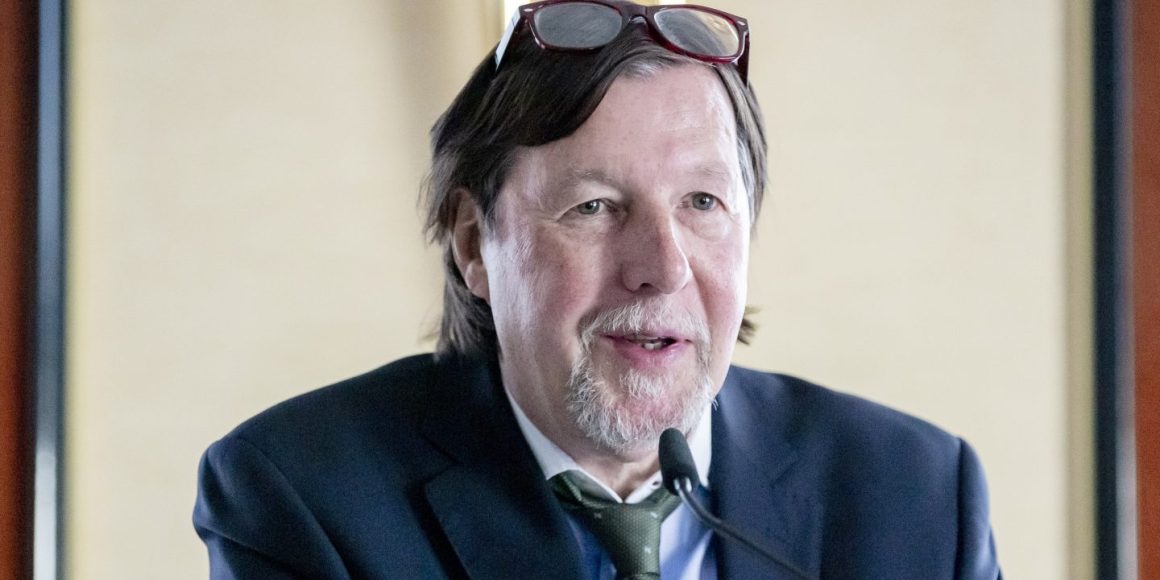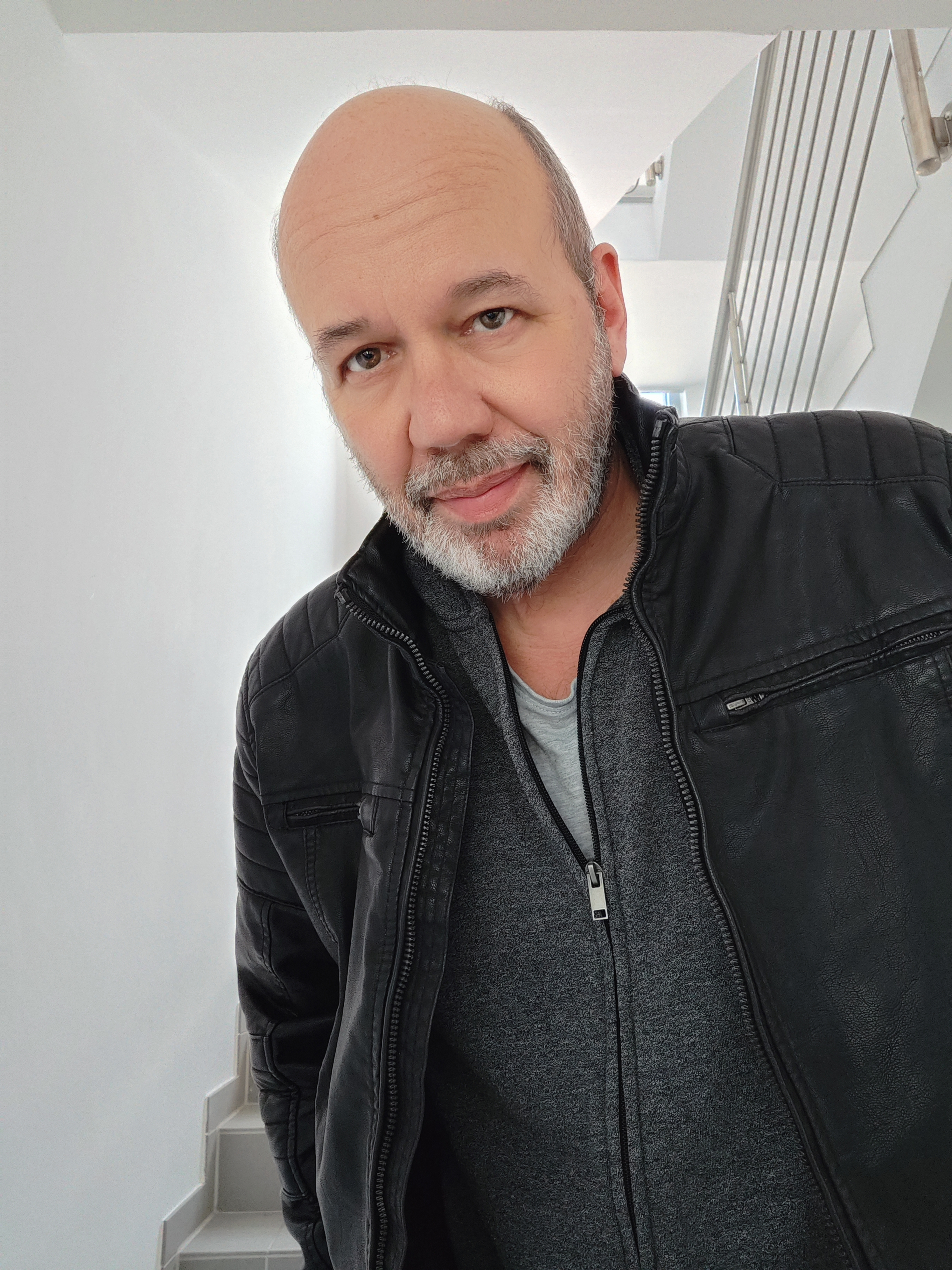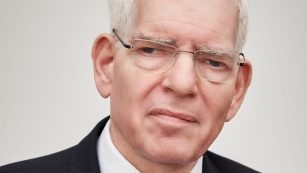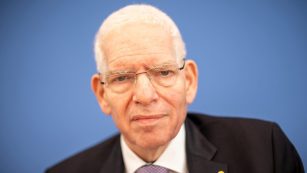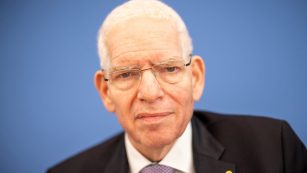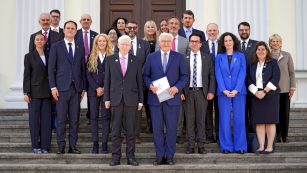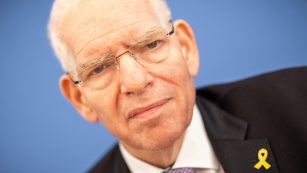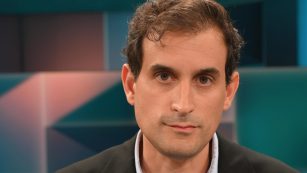A step taken by the conservative party CDU and its Bavarian version CSU in the Bundestag in Berlin last week has led to heated discussions and protests throughout the country. Their motion to tighten up Germany’s migration policy was criticzed harshly because it was pushed through with votes from the far-right AfD. Jews and Jewish organizations in the Federal Republic are criticizing CDU party chairman Friedrich Merz for pulling through with his stunt.
»Democratic principles are not a political negotiating tool«, the Jewish Student Union Germany (JSUD) said in a statement. »We oppose any form of extremism and any cooperation with parties and actors that represent misanthropic world views and ideologies.« According to JSUD, the AfD is a »structurally antisemitic, openly racist and right-wing extremist party«.
There should not be any kind of cooperation with fascists, antisemites and extremists, the organization stressed. »The firewall has been torn down. This increases the responsibility of every single MP in future decisions.«
Criticism from Holocaust Survivors
Holocaust survivor Eva Umlauf is among the critics of the union parties’ action in the Bundestag: »The vote by the CDU/CSU with the AfD has shaken the democratic firewall.« According to her, it could be torn down. »Don’t do that«, she said.
Christoph Heubner, the Executive Vice President of the International Auschwitz Committee, told the Jüdische Allgemeine that Holocaust survivors are worried and sad: »They are asking themselves why a far-right, anti-democratic party which spreads antisemitic rhetoric is moving towards the center of the political decision-making process in Germany.«
They also wondered »why the leader of a major conservative party, which until now has respected the lessons of Holocaust history as well as the dignity and life’s work of Holocaust survivors, suddenly considers it acceptable to work with a party that wants to throw the lessons of Holocaust history on the trash dump.«
»Fatal Mistake«
According to Heubner, Wednesday of last week was therefore »the day of a fatal mistake«: »Once before, people in Germany believed they could contain, tame and use right-wing extremists. The consequences are well known«, he said.
The AJC Berlin called on the democratic parties to stand together. Director Remko Leemhuis stated: »We already found it inappropriate that the Bundestag went back to its usual parliamentary business after the remembrance ceremony for the victims of National Socialism, shortly after the 80th anniversary of the liberation of the death camp in Auschwitz, and left no room for a debate.«
Especially after the deeply moving speech by Shoah survivor Roman Schwarzman, a pause would have been appropriate, according to Leemhuis: »It is deeply regrettable that his speech received no more attention due to the result of the vote and how it came about, and that the day ended with images of cheering AfD MPs.«
Antisemitism Commissioner Defends Merz
Daniela Ludwig, the CDU/CSU parliamentary group’s commissioner for Jewish life in Germany, defended the CDU/CSU’s actions in the Bundestag. »We are taking the initiative for a fundamental policy change in internal security, for secure borders and for limiting illegal migration«, she stated.
»Our democracy is in danger when extremists come to power. But using them as an excuse for not taking action and risking an aggravation of the situation is extremely dangerous«, Daniela Ludwig said. »It is time for the Social Democrats and the Greens to abandon their dangerous blockade stance and finally show some backbone for security, order and the rule of law.«
Several other CDU/CSU politicians, including former Chancellor Angela Merkel, expressed contrary views. Merkel said voting with the right-wing extremists was wrong.
Criticism from Central Council
The Central Council of Jews in Germany criticized the step as well: »It is disappointing that the democratic political forces in our country were not able to agree on a common approach and thus set the stage for the AfD«, its President Josef Schuster told this newspaper.
Michel Friedman, another famous community member, reacted by canceling his CDU membership after forty years.
The historian and journalist Michael Wolffsohn shared a contrary point of view. He defended the CDU/CSU’s approach in the Bundestag. According to him, »it should be possible to achieve changing majorities for individual projects in key policy areas«.
In an interview with »Welt TV«, Wolffsohn said that there were democracies in which this concept had been practiced very successfully and several times: »I’m thinking of Denmark, where the right-wing extremists have been reduced from 20 percent to just under 3 percent support. You can also learn from others.«

